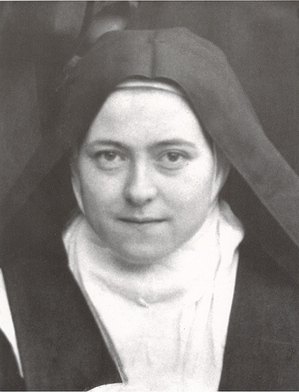Third Letter to Wilfrid on Prayer
Emptiness, Darkness, and Doubts
It has been some time since l wrote you last. You tell me that, since that last letter, your prayer has continued to be a struggle, a waiting in the night. You tell me of the emptiness you often feel and of the doubts that assail you at the time of prayer. You fear that your soul is altogether devoid of faith, of hope, and of love for God.
The Disconcerting Pedagogy of God
You are not, dear Wilfrid, the first soul to experience such things, nor will you be the last. I am reminded of that passage in the Epistle to the Hebrews (12:3-7) wherein we learn, to our consolation, that discipline, rebuke, chastisement, and scourging are not foreign to the disconcerting pedagogy of God.
Think diligently upon him that endured such opposition from sinners against himself; that you be not wearied, fainting in your minds. For you have not yet resisted unto blood, striving against sin: And you have forgotten the consolation, which speaketh to you, as unto children, saying: My son, neglect not the discipline of the Lord; neither be thou wearied whilst thou art rebuked by him.
For whom the Lord loveth, he chastiseth; and he scourgeth every son whom he receiveth. Persevere under discipline. God dealeth with you as with his sons; for what son is there, whom the father doth not correct?
The Truth: Irritating and Salutary
I do understand, Wilfrid, how even the Word of God can sound empty and unreal when one is sitting in darkness and in the shadow of death, not daring to believe and not daring not to believe; not risking hope and not risking not to hope; not quite clinging to love and not quite forsaking love. In such hours God’s ways seem harsh and unjustified. And yet, exposing oneself in such hours to the truth of the Word of God, even when we find that truth irritating, is salutary.
Lovest Thou Me?
Yesterday, for the feast of Pope Saint Gregory VII, we sang the Introit from the Common of Supreme Pontiffs: “If thou lovest me, Simon Peter, feed My lambs; feed My sheep.” While singing it, I recalled the whole scene: the risen Christ; the fallen Peter; the threefold question, “Lovest thou me?”; and the threefold confession of love, culminating in that most beautiful of prayers, “Lord, Thou knowest all things; Thou knowest that I love Thee” (Jn 22:17).
Praying As One Can
I realized then that there are seasons and hours in the spiritual life when, in spite of one’s best efforts, one is unable to say to Our Lord with Saint Peter, “Thou knowest that I love Thee.” There is too much self-doubt. One’s prayer is inhibited by fear. In such seasons and in such hours, I propose, dear Wilfrid, that you say only the first part of Saint Peter’s prayer: “Lord, thou knowest all things.” Repeat it over and over, until the Lord Himself, operating in you by the Divine Comforter, the Holy Ghost, makes it possible for you to say the second half of it: “Thou knowest that I love Thee.” Pray then, as you can, Wilfrid, and not as you can’t. When one tries to pray as one can’t, one strains too much the faculties of the soul, and so brings on oneself a kind of spiritual exhaustion.
Twenty-two years ago, and shortly before His death, dear Father Cyril Karam, the founder of Saint Mary’s Monastery in Massachusetts, shared with me that he had suffered several years of total spiritual darkness, marked by frightful temptations, and by a seeming inability to pray. (I myself was in a prolonged period of darkness at the time.) During that period of darkness, Father Cyril could do but one thing: he would sit as quietly as he could, clinging to a picture of Saint Thérèse. No words. No thoughts. His entire prayer, such as it was, consisted in clinging to an image of the Little Flower. One day, quite unexpectedly, the darkness lifted, and Father Cyril found himself as closely united to Our Lord in the light as if he had been praying ceaselessly in preparation for the day and hour of his deliverance. And he was praying: praying by clinging to a picture of the twenty-four year old Doctor of the Church who wrote:
To judge by the sentiments I express in all the little poems I’ve made up during the last year, you might imagine that my soul was as full of consolations as it could hold; that, for me, the veil which hides the unseen scarcely existed. And all the time it isn’t just a veil; it’s a great wall, which reaches up to the sky and blocks out the stars! No, when I write poems about the happiness of heaven and the eternal possession of God, it strikes no chord of happiness in my own heart — I’m simply talking about what I’m determined to believe. Sometimes, it’s true, a tiny ray of light pierces through the darkness, and then, just for a moment, the ordeal is over; but immediately afterward the memory of it brings me no happiness, it seems to make the darkness thicker than ever.
Clinging to Hope
Say the prayer of Saint Peter as best you can, dear Wilfrid: “Lord, Thou knowest all things.” And ask Saint Thérèse of the Child Jesus and of the Holy Face to obtain for you the grace of clinging to hope until, at length, you are able to say with Saint Peter, and with her, “Thou knowest that I love Thee.”
I bless you.
Father Prior


